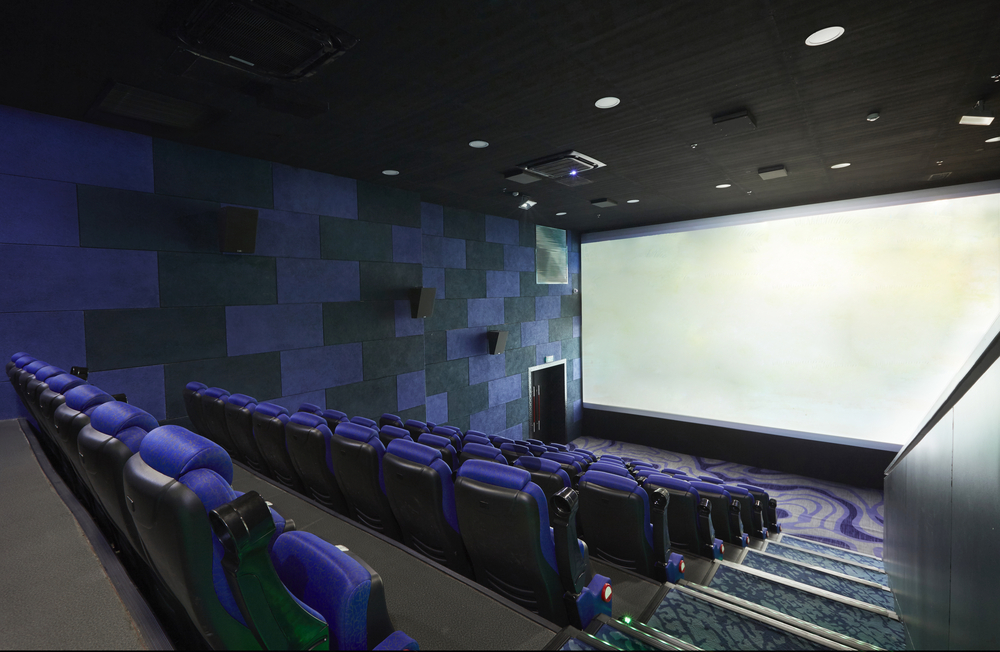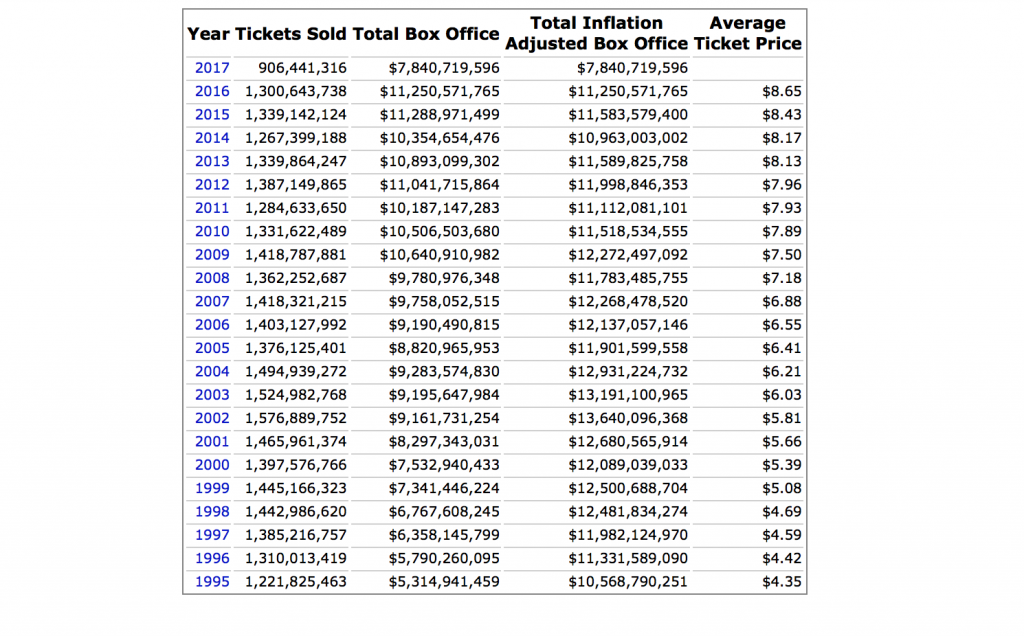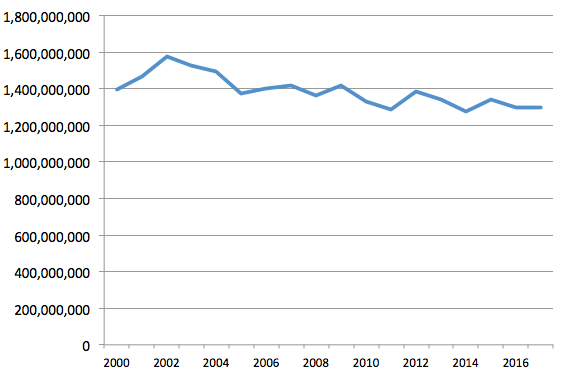
How Can Filmmakers Adapt to Hollywood’s Slump?
Hollywood is adapting to decreasing profits by embracing new media outlets and production models. What should filmmakers do to adapt?
Cover image via Shutterstock.
The film industry has just recorded its worst performance at the box office in more than a decade, selling 400,000,000 fewer tickets than the previous year. While studios and publications are finding many avenues to blame for this summer’s poor performance, it seems to simply be a case of changing consumer behavior.
The ways we watch movies have completely changed — from the smallest indie film to biggest Hollywood blockbuster. For filmmakers, observing and adapting to this ever-changing model is the key to a long and sustainable career in the industry.

Image via Shutterstock.
Is Rotten Tomatoes to Blame?
When there’s a new film coming out, many of us immediately go to Rotten Tomatoes and check the film’s latest score. A recent New York Times article reports that Rotten Tomatoes was to blame for the poor performance this summer. While consumers, myself included, and movie-goers do have greater access to reviews and information than ever before, it doesn’t seem to correlate as much as anticipated.
For example, while the film Detroit received excellent reviews, it still performed poorly in the box office. In contrast, The Emoji Movie was reviewed poorly but still performed well at the box office. Even though Rotten Tomatoes most likely does have a strong influence on consumer behavior, it doesn’t seem to be the main motivating factor.
From the NYT article:
Studio executives’ complaints about Rotten Tomatoes include the way its Tomatometer hacks off critical nuance, the site’s seemingly loose definition of who qualifies as a critic and the spread of Tomatometer scores across the web. Last year, scores started appearing on Fandango, the online movie ticket-selling site, leading to grousing that a rotten score next to the purchase button was the same as posting this message: You are an idiot if you pay to see this movie.
Are Movie-Goers Bored with Reboots and Sequels?
Journalists have also been placing the blame with crowds growing tired of reboots and sequels. I must admit that I’ve grown tired of them too. However, once you dive deeper into the statistics, this still doesn’t reveal the truth. Guardians of the Galaxy V. 2 performed very well, and Stephen King’s IT has just had the best opening for a horror film, ever. Both of these films were either sequels or reboots.
With all of this in mind, one must wonder why is there such a steady decline in theater attendance. It seems that the answer may just be as simple as changing consumer viewing habits.

Image via Shutterstock.
What’s Changed?
Recently, there have been talks about Apple potentially buying the rights for the James Bond film franchise. This piece of news, I feel, is the key to understanding just how consumer viewing habits are going to continue shifting. Looking at Apple’s track record, it’s hard to believe that if Apple purchased the rights to the franchise, they would send their first produced film to theaters. It would most likely be an online release. A new James Bond film straight to streaming could be the catalyst in a huge paradigm shift.
A recent article from The Atlantic dives more into Hollywood’s poor summer performance. Interestingly, ticket sales for movies have been steadily declining for years.
2000 – 2017 U.S. Movie Ticket Sales
Netflix and online video seem to be the main reason for Hollywood’s summer of decline. Consumers now have more options than ever before. They can watch movies at their own leisure in the comfort of their own homes, which is nothing new. However, what is new are the vast catalogs of content consumers have at their fingertips.

Image and data via The Numbers.
Hollywood’s best chance, not just at survival but at thriving, is to embrace this change in consumer behavior. We, as filmmakers, must also not just adapt to change but embrace it. Much like the change in consumer behavior for Hollywood, the world of independent filmmaking is undergoing massive shifts. Throughout my experience, I’ve noticed three traits a filmmaker needs to succeed in the ever-changing environment (and market) of independent filmmaking.
What Can I Do As A Filmmaker to Change with the Market?
1. Networking Is Now Just Marketing
The concept of networking is nothing new. However, the ways in which we network are shifting. I assert that nothing will ever replace face-to-face networking. That’s the golden standard. There will always be something more trustworthy and reliable about meeting someone, working on set, and producing great projects together. However, many tools have surfaced in the last ten years to make networking more meaningful — and to expand your reach outside of your own network. The line between networking and marketing yourself as a filmmaker is more blurred than ever before.
An active online presence is essential to finding success as a content creator. Creating and maintaining an active online presence now is more than just putting up a website. Being active on multiple social platforms is essential. Take Instagram for example. Yes, nearly everyone has an account, but how actively are you using Instagram as a tool to promote yourself and network with like-minded filmmakers?

Image via Shutterstock.
I never took Instagram seriously as a platform for networking. However, once agencies began to contact me after they saw my profile, I knew I needed to pay more attention to it. Aside from posting pictures from productions you’ve worked on, use it as a tool to hone your craft by taking and posting more photos of things you like. Relay your unique style and vision.
Another way to network online is to list your equipment on services like Sharegrid. It’s a great way to meet and network with other filmmakers. Like networking, marketing is now also key to establishing a larger reach.
2. Owning Equipment Is Important
Own your equipment. The days of a DP or cinematographer owning zero equipment are nearly gone. I understand that this is a topic of hot debate. However you can’t argue that DPs are expected now more than ever to bring equipment to the table. This isn’t true 100 percent of time, but the expectation is increasing. That equipment may include anything from a camera body to lenses to gimbals.
In today’s market, providing value to a production will help you to obtain more work. Yes, many great Hollywood DPs don’t own a single piece of equipment. However, we’re not those DPs. The market was drastically different when they were coming up through the ranks. While we’re striving to establish ourselves as filmmakers, there are things we need to do to provide added value to a production.

Image via Shutterstock.
If you’re serious about filmmaking and expanding your career as a cinematographer, purchasing quality equipment should be a much easier pill to swallow. I recently met with a production company, and the executive producer said, “I can usually tell where a DP is in their career by the type of camera they own.” That hit like a ton of bricks. Yes, it may not be 100 percent true, but there is still a lot of truth in that statement.
Don’t just own any equipment — own quality equipment. Have gear that you can rent to the production. Own equipment that you can rent out even if they’re not hiring you as a crew member. By going this route, not only will you gain more clients, but you’ll also bring in more revenue by investing in assets.
3. Make More Passion Projects
Passion projects essentially boil down to creating a quality piece of work that shows off your creativity and filmmaking vision. It doesn’t have to be a $30,000 short film. It can simply be a commercial you’re doing that you love and wish to put a little more effort, time, and resources into.
Now it’s easier than ever to post your content for the world to see. Passion projects are the easiest way to get your content and vision as a filmmaker out to the masses. If you network well and own your own equipment, creating passion projects become much easier and more affordable.

Image via Shutterstock.
One of my own passion projects is still what gets me a lot of work. Yes, passion projects are hard to make time for. However, they can define careers. Taking time out of your busy schedule to hone and invest in your own creativity can be one of the best approaches you can teach yourself as a filmmaker. Instead of limiting yourself to only working on corporate, commercial, or other people’s features, create your own features, shorts, or art pieces. Help yourself grow as a creative, and don’t expect other people to do it for you.
Times are changing for creative filmmakers — and even for Hollywood. Anticipating these changes and being at their forefront is what will ensure a long and stable career.







